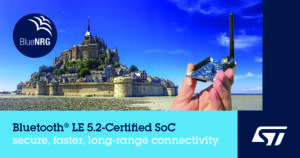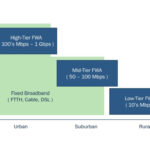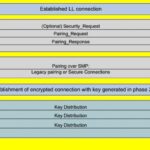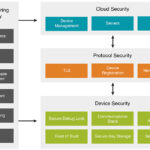 STMicroelectronics has revealed its latest BlueNRG-LP Bluetooth LE System-on-Chip (SoC), which leverages the latest Bluetooth features to increase communication range, raise throughput, strengthen security, and save power. The ultra-low-power radio is optimized to consume as little as 3.4mA in receive mode, just 4.3mA when transmitting, and less than 500nA quietly waiting for wake-up events, cutting by half the size of battery needed in most applications and prolonging runtime.
STMicroelectronics has revealed its latest BlueNRG-LP Bluetooth LE System-on-Chip (SoC), which leverages the latest Bluetooth features to increase communication range, raise throughput, strengthen security, and save power. The ultra-low-power radio is optimized to consume as little as 3.4mA in receive mode, just 4.3mA when transmitting, and less than 500nA quietly waiting for wake-up events, cutting by half the size of battery needed in most applications and prolonging runtime.
BlueNRG-LP, the 3rd-generation Bluetooth SoC from ST, is the world’s first Bluetooth LE 5.2-certified SoC to support concurrent connections up to 128 nodes, enabling seamless low-latency control and monitoring large numbers of connected devices, for instance from a stylish and intuitive smartphone app.
Combined with high RF-output power, which is programmable up to +8dBm, and excellent RF sensitivity of up to -104dBm, the BlueNRG-LP radio SoC can now natively cover a much larger area in beacons, smart lighting, gaming, building automation, industrial and tracking applications. Furthermore, the communication range can be extended without limit by seamlessly adding Bluetooth LE Mesh, now fully certified and available as part of the comprehensive BlueNRG software and hardware ecosystem.
In addition, BlueNRG-LP supports Bluetooth Long Range mode, which uses coded physical layers (Coded PHY) with Forward Error Connection (FEC) to extend radio-communication range up to hundreds of meters and increase reliability, as well as GATT (generic attribute) caching to connect quickly and efficiently.
BlueNRG-LP comes with ST’s third-generation Bluetooth Low Energy protocol stack certified to Core Specification 5.2 and designed to match its ultra-low-power architecture. The stack is provided as a free-of-charge and compiler-independent linkable library supported by multiple Integrated Development Environments (IDEs) and is optimized for small footprint, modularity, low latency, interoperability, and lifetime over-the-air upgradability. It supports features such as extended advertising and scanning, high-duty-cycle non-connectable advertising, extended packet length, and 2Mbit/s throughput.
In addition, BlueNRG-LP supports L2CAP Connection-Oriented Channel (CoC), which eases large bidirectional data transfers, multi-role simultaneous connectivity, and Channel Selection Algorithm #2 (CSA #2), which permits robust connections in noisy environments such as home, building, or industrial networks.
Enhanced security mechanisms included in the integrated Arm Cortex-M0+ microcontroller (MCU) comprise a secure bootloader, readout protection for the entire 256KB embedded flash, a 48-bit unique ID, as well as customer key storage, true Random-Number Generator (RNG), hardware public-key accelerator (PKA), and a 128-bit AES cryptographic co-processor. The highly efficient processing unit executes code at up to 64MHz, consuming an amazingly tiny 18µA/MHz, and features industry-standard digital interfaces, multi-channel 12-bit ADC, an analog microphone interface with a programmable gain amplifier, user and system timers and watchdog, and up to 31 5V-tolerant user-programmable I/O pins.
The BlueNRG-LP SoC also integrates an embedded RF balun, DC/DC converter, and capacitors for the HSE (High-Speed External) oscillator and internal low-speed ring oscillator, minimizing bill-of-materials (BOM) costs and simplifying circuit design.
BlueNRG-LP is available in a choice of 5mm x 5mm QFN32, 6mm x 6mm QFN48, and a miniature 3.14mm x 3.14mm WLCSP49 wafer-level package. With 32KB or 64KB RAM and a choice of temperature range up to 85°C or 105°C, designers get extra flexibility to choose a configuration that best meets their needs. The devices are covered by ST’s 10-year industrial longevity commitment, assuring users of long-term parts availability.
BlueNRG-LP SoCs are in production now, in QFN48, priced from below $1.00 for volume orders.





Leave a Reply